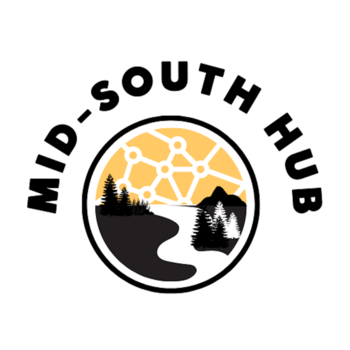
George Mason University is among the nine partners selected by the National Science Foundation (NSF) to comprise a regional consortium of diverse universities whose aim is to provide experiential entrepreneurial training to academic researchers from all fields of science and engineering.
“As Mason builds the next generation of diverse tech talent in Northern Virginia, this experiential entrepreneurship programming will catalyze new ‘lab to market’ initiatives within the recently announced Fuse at Mason Square (formerly Arlington Campus),” said Andre Marshall, Mason’s vice president for research, innovation and economic impact.
The newly formed Mid-South Hub of the NSF Innovation Corps (I-Corps) Hubs network will pair Mason with lead institution Vanderbilt University and other partner institutions, including the University of Kentucky, Jackson State University, Meharry Medical College, Tennessee State University, the University of Louisville, the University of Tennessee-Knoxville and the University of Virginia.
“Each regional I-Corps Hub provides training essential in entrepreneurship and customer discovery, leading to new products, startups and jobs,” said Erwin Gianchandani, the NSF’s assistant director for technology, innovation and partnerships. “In this way, the I-Corps program will open up new economic opportunities throughout the United States.”
The nine I-Corps Hubs around the nation form the operational backbone of the National Innovation Network, a collaborative effort among universities, NSF-funded researchers, local and regional entrepreneurial communities and other federal agencies to help researchers convert their results to the marketplace.
“Basically, in its essence, the I-Corps program provides experiential entrepreneurial training to researchers,” Marshall said. “It’s an experiential learning program focused on researchers.”
The Mid-South Hub, which will launch in January 2023 with a five-year grant of $15 million, was one of five new hubs recently announced by NSF. Established in 2011, the I-Corps program helps the NSF identify universities that will find the most promising research faculty and students in the country doing research on highly technical fields like cybersecurity that hold the most promise to translate their discoveries into high-impact societal and commercial benefit.
A top-tier research university, Mason is also a top 10 public university in cybersecurity according to US News & World Report. "Working in collaboration with NSF and other universities, Mason will be leading commercial and government partnerships to increase discovery, solutions, new ventures, and economic development in Northern Virginia and Greater Washington Metropolitan area,” Marshall said.
The first five I-Corps Hubs were awarded in 2021, with each hub expanding its reach this year by adding a new partner institution to their region.
“This hub will accelerate the translation of groundbreaking university research outcomes into commercialized ventures that seed emergent, prosperous innovation ecosystems across the Midsouth,” said Vanderbilt’s Charleson Bell and Deanna Meador, the respective director and deputy director of entrepreneurship, biomedical innovation and I-Corps, in a joint statement.
The I-Corps Hubs work collaboratively to build and sustain a diverse and inclusive innovation ecosystem throughout the U.S.
“Mason is among the universities chosen because it is seen as rich in ‘deep-tech’ research activity, leaders in diversity and inclusion, and committed to translating university-based discoveries,” Marshall said, adding that many Mason faculty and students will participate in the Hub, supported by the Mason Enterprise network.
Mason’s selection for the Mid-South Hub also struck a more personal chord for Marshall, as he was among the first teams to have participated in the program in 2012 before being named director of the NSF’s I-Corps program some years later and prior to coming to Mason.
“We are going to be part of a national community of researchers and entrepreneurship experts that values the impact that basic research can have to the economy and to society through innovation and entrepreneurship,” Marshall said.
Vanderbilt plans to host a summit with the Mid-South Hub universities in the near future to build the five-year vision for the hub’s inclusive innovation corridor.
